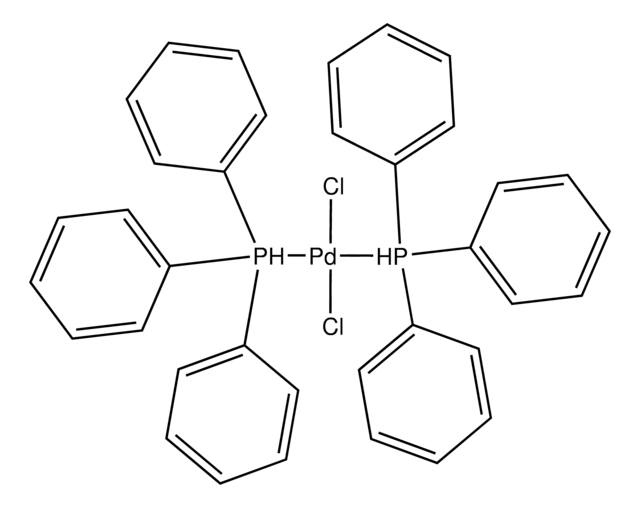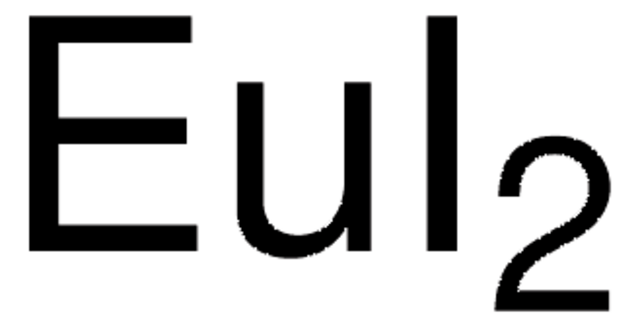215554
Copper(I) iodide
99.999% trace metals basis
Synonym(s):
Cuprous iodide
About This Item
Recommended Products
vapor pressure
10 mmHg ( 656 °C)
Quality Level
Assay
99.999% trace metals basis
form
powder and chunks
impurities
≤15.0 ppm Trace Metal Analysis
bp
1290 °C/1 atm (decomp)(lit.)
mp
605 °C (lit.)
solubility
dilute aqueous acid: insoluble(lit.)
density
5.62 g/mL at 25 °C (lit.)
application(s)
battery manufacturing
SMILES string
[Cu+].[I-]
InChI
1S/Cu.HI/h;1H/q+1;/p-1
InChI key
LSXDOTMGLUJQCM-UHFFFAOYSA-M
Looking for similar products? Visit Product Comparison Guide
Application
- For arylation of pyrazole and derivatives by coupling arenediazonium species under mild and ligand-free conditions.
- Selective cross-coupling of dibromo alkenes and heteronucleophiles which leads to numerous building blocks such as 1-bromoenamides, ynamides, ketene N, N-acetals, 1-bromoenol ethers, ynol ethers, ketene O, O-acetals, and vinyl phosphonates.
- Stereospecific and the regioselective reaction of silacyclopropanes with carbonyl compounds.
Features and Benefits
- Low toxicity
- Mild reaction condition
- High purity ensures reproducibility and avoids cocatalysis by contaminants.
Signal Word
Danger
Hazard Statements
Precautionary Statements
Hazard Classifications
Acute Tox. 4 Oral - Aquatic Acute 1 - Aquatic Chronic 1 - Eye Dam. 1 - Skin Irrit. 2 - Skin Sens. 1A - STOT RE 1 Oral
Target Organs
Thyroid
Storage Class Code
6.1C - Combustible acute toxic Cat.3 / toxic compounds or compounds which causing chronic effects
WGK
WGK 3
Flash Point(F)
Not applicable
Flash Point(C)
Not applicable
Personal Protective Equipment
Choose from one of the most recent versions:
Certificates of Analysis (COA)
Don't see the Right Version?
If you require a particular version, you can look up a specific certificate by the Lot or Batch number.
Already Own This Product?
Find documentation for the products that you have recently purchased in the Document Library.
Customers Also Viewed
Our team of scientists has experience in all areas of research including Life Science, Material Science, Chemical Synthesis, Chromatography, Analytical and many others.
Contact Technical Service
















